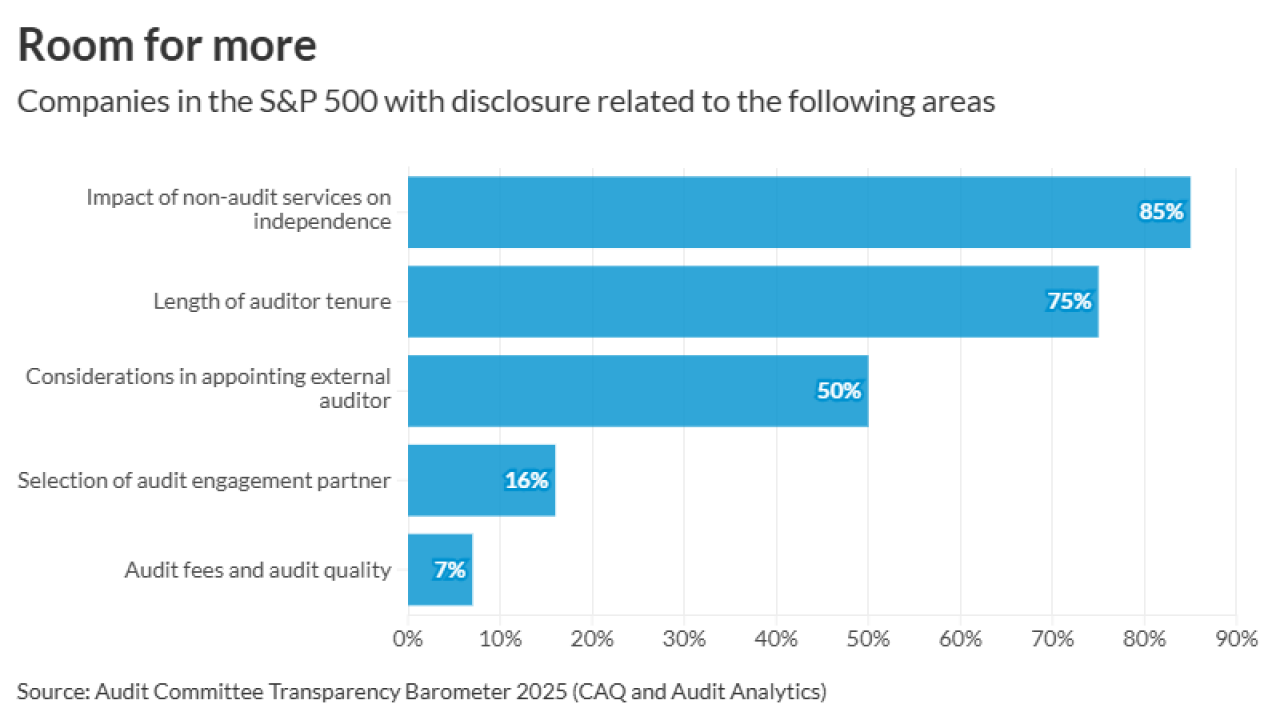An overwhelming majority of corporate board directors oppose the Securities and Exchange Commission’s proposal to require mandatory disclosure of communications between audit committees and auditors, according to a new survey.
The
“Given proposals from shareholder activists for more transparency with regard to campaign contributions and a growing trend of companies self-reporting such information, board members appear to be getting more comfortable with the idea of mandatory disclosure of political contributions,” said Amy Rojik, a partner in the Corporate Governance Practice at BDO USA, in a statement. “In contrast, directors are clearly not in favor of mandated disclosure of audit committee communications with the external auditor. This is consistent with the comment letters the SEC has received on this proposal, as boards are sensitive to how such disclosures may have the unintended consequence of chilling communications between their audit committees and the external auditors.”
In addition, the BDO survey found 74 percent of public company board members do not believe the pending CEO–median employee pay ratio will be a meaningful disclosure for investors, while a similar percentage (72 percent) are in favor of the SEC’s proposed “claw back” rule requiring businesses to recoup senior executives incentive pay when material errors result in a financial restatement. A narrow majority of 53 percent of the 150 corporate board directors polled indicated they are in favor of the SEC developing mandatory disclosure rules for corporate political contributions.
Tax Planning
The “Cadillac tax,” a provision of the Affordable Care Act that goes into effect in 2018, will place a 40 percent tax on health benefit costs paid by employers that exceed government-set thresholds of $10,200 for individuals and $27,500 for families. Forty percent of the public company board members polled by BDO believe their company will be affected by the Cadillac tax and 65 percent of those affected plan to make changes to their health benefits to avoid the tax.
When asked about specific changes they were considering, strong majorities cite a shift to higher deductible plans so that employees pay more medical expenses out-of-pocket (95 percent), dropping high-cost plan options (86 percent), adopting wellness and preventative initiatives to drive down costs (83 percent) and reducing the overall level of benefits offered (78 percent).
On the subject of tax extenders, 77 percent of the board members surveyed believe the precarious nature of these tax credits that need to be renewed year after year by Congress makes it difficult for their businesses to make long-term planning decisions. The same percentage are in favor of making these credits permanent.
Forty-nine percent of corporate directors say they are in favor of replacing the corporate and personal income tax with a tax on consumption. Last year, only 40 percent of the board directors surveyed by BDO were in favor of switching to a consumption tax. A consumption tax, which captures all segments of the economy, is viewed as less complex and much easier to administer than the income tax.





